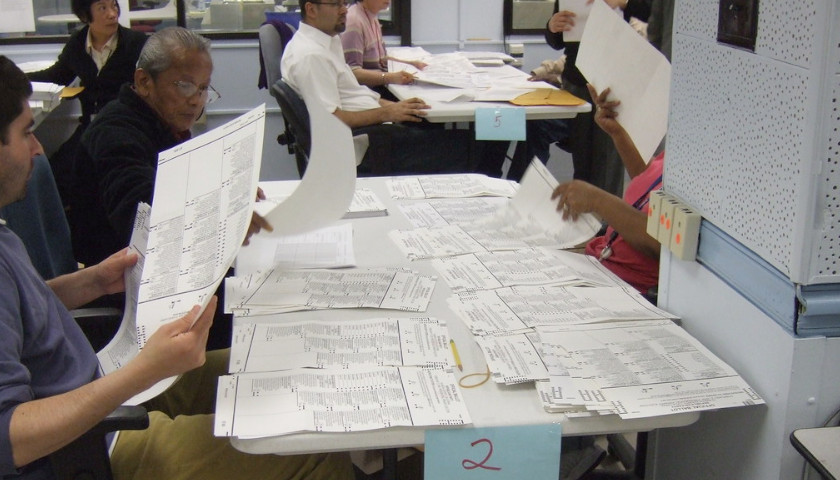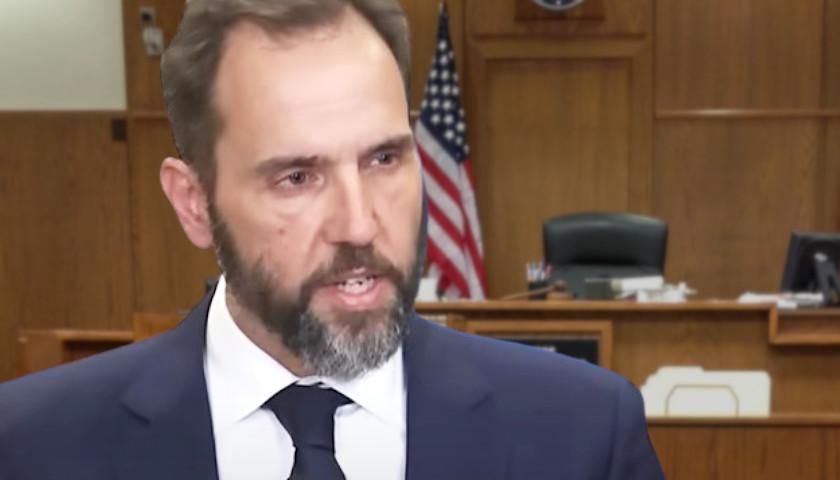The Arizona Sun Times examined the outcomes of the 92 cases challenging problems with the 2020 election and discovered many of the rulings were opposed to each other despite the facts and laws being very similar.
The analysis was based on a comprehensive report compiled by physicist John Droz and a team of statistical PhDs, which refuted the mainstream media’s claim that were 60 lawsuits thrown out on the merits. The report found that only 30 of those cases were decided on merit, and of those 30, Trump and/or the Republican plaintiff prevailed in 22. This analysis, Part One, examines some of the divergent opinions on standing, fraud, and injury.
Constitutional attorney Robert Barnes said about the judges’ reasonings for throwing out 2020 lawsuits, “Can’t sue before the election, can’t sue during election, can’t sue after election. Not ripe in spring, no standing by summer, Laches by fall, and moot by winter.”
Many of the challenges were dismissed by judges because they failed to “allege a particular injury” or “irreparable harm,” or the risk of fraud was too speculative, but were instead a “general grievance.” However, a few judges came to the opposite conclusion regarding the same facts. Many of the challenges cited violations of state law but were dismissed for various reasons, such as claiming to stop the illegal actions were too close to the election, risking disenfranchisement of voters, or justifing as an emergency due to COVID-19. On the other hand, some judges refused to allow the illegal activity to continue, conducting a balancing test.
Other common reasons to dismiss the lawsuits were stating they were moot or barred by laches, which usually meant they were filed too late. A few federal judges dismissed the cases, stating they involved state claims, but others did not. Some lawsuits demanded to look at election materials, such as voters’ signatures and ballot images and were allowed by some judges but not by others.
In RNC v. Weipert, a judge found that the mere possibility of fraud was enough to grant an injunction stopping an illegal action by an election official. In that case, the Republican National Committee (RNC) sued the Johnson County auditor in Iowa for sending voters Absentee Ballot Request (ABR) applications prepopulated with some of their voter information in violation of the Iowa Secretary of State guidance.
“Defendant’s first legal argument is that Plaintiffs lack standing to bring these claims against him,” District Court Judge Ian K. Thornhill said in his ruling. “Defendant contends that Plaintiffs’ claims are based solely on the allegations that the prepopulated ABRs may lead to voter fraud in Johnson County and may ‘dilute’ the votes of Iowans living outside Johnson County. … Defendant asserts that a temporary injunction would substitute the Court’s discretion in matters assigned to Johnson County under the Iowa Constitution.”
Thornhill disagreed with the defendants’ assertions, and found that the RNC had standing to sue “as entities with involvement and interests in the outcome of the November, 2020 general election, including with respect to voter registration and mobilization and having representatives of their political party on the ballot.” Additionally, “Plaintiffs have shown that, if the claims alleged produce a legally cognizable injury, they are among those who have sustained it.”
He said regarding harm, “Plaintiffs also have demonstrated that they will suffer irreparable harm if an injunction is not entered” since “different actions by different county auditors will require different actions by Plaintiffs when it comes to things like voter registration, voter mobilization, and the overall integrity of the votes cast.”
He said, “It is true that significant remedial measures will have to be undertaken by Defendant and his staff to correct the ABRs that were mailed in contradiction to the directive.”
Thornhill addressed this, pointing out the wrongdoing was intentional, “Defendant’s actions in mailing out the prepopulated ABRs show he was aware of the risk he was taking, and the remedial measures are a direct consequence of the risk knowingly taken by Defendant.”
He added, “The Court finds this is the type of extraordinary situation in which temporary injunctive relief is appropriate.”
Similarly, in RNC v. Gill, the RNC sued the Woodbury County auditor for sending voters absentee ballot applications prepopulated with some of their voter information. In that ruling, which was also authored by Thornhill, he warned that there was a risk of fraud if the illegal behavior was not enjoined.
He said, “While the Defendants claim that voter fraud with absentee ballots is almost nonexistent, it is also the type of fraud that is almost impossible to detect.”
The judge added, “Sending out ABR’s with all the information that a person that intends to commit fraud would need certainly does not limit the likelihood of fraud taking place, but would likely help to facilitate it.”
Thornhill said it wasn’t necessary to prove fraud first.
“What the Defendants want the Plaintiffs to be required to do is to prove that fraud has already occurred before they can establish their injury,” he said. “From a practical perspective, once fraud has occurred it will already likely be too late.”
He said the fact it increases the difficulty of finding fraud was enough, explaining that if the illegal mailings are not stopped, “the Plaintiffs would certainly need to expend a great deal more effort to try to detect fraud then they otherwise would have to if blank forms were used as directed by the Secretary of State.”
Thornhill said, “Plaintiffs have shown that they will suffer injury and irreparable harm if an injunction is not issued,” and that “it is likely that the Plaintiffs will succeed on the merits at final hearing.”
He balanced out the harm “sought to be avoided by the Plaintiffs against the harm that the issuance of an injunction might cause.” Although the injunction would cause “confusion” and “will likely result in some voters not receiving an absentee ballot,” he ultimately decided, “if certain voters do not understand or request a new absentee ballot, their ability to vote has not been prevented.”
Thornhill again explained why the RNC had standing, “The Plaintiffs have a direct interest in seeking that a uniform election system is in place and that established election rules and laws are complied with.”
In contrast, most judges who ruled on election lawsuits challenging violations of state law found ways to dismiss them. In Donald J. Trump for Pres., Inc. v. Boockvar, the courts ruled against a complaint where election workers helped voters cure mail-in ballots because the complaint didn’t allege fraud had occurred yet. In that case, the voters failed to include their name, address, and/or a date on the mail-in envelope accompanying their ballots.
Section 3146.6(a) of the Pennsylvania statutes states in part, “The elector shall then fill out, date and sign the declaration printed on such envelope.”
Guidance from the Pennsylvania Secretary to the State issued before the 2020 election provided, “A ballot return envelope with a declaration that is not filled out dated, and signed is not sufficient and must be set aside, declared void and may not be counted.”
One of the courts that heard the case, the first appeals court, the Commonwealth Court, held that the ballots could not be counted. The Pennsylvania Supreme Court, whose ruling was upheld by the Third Circuit Court of Appeals, emphasized the trial court’s finding that “[n]either a date nor the elector’s filling out of the printed name or of the address are requirements necessary to prevent fraud.”
The court dismissed the plaintiffs’ argument that the date deterred fraud, stating that officials don’t look at it. The court dismissed the violations of law as a “technicality,” stating, “this ‘requirement’ is, at best, a ‘minor irregularity’ and, at worst, entirely immaterial.”
Additionally, regarding the lack of a date, the court said the statute was a “directory, rather than a mandatory, instruction, and thus the inadvertent failure to comply does not require that ballots lacking a date be excluded from counting.”
The justices said, “[W]hile constituting technical violations of the Election Code, do not warrant the wholesale disenfranchisement of thousands of Pennsylvania voters.” There were two dissenting opinions filed, in which four of the seven justices participated.
– – –
Rachel Alexander is a reporter at The Arizona Sun Times and The Star News Network. Follow Rachel on Twitter / X. Email tips to [email protected].





